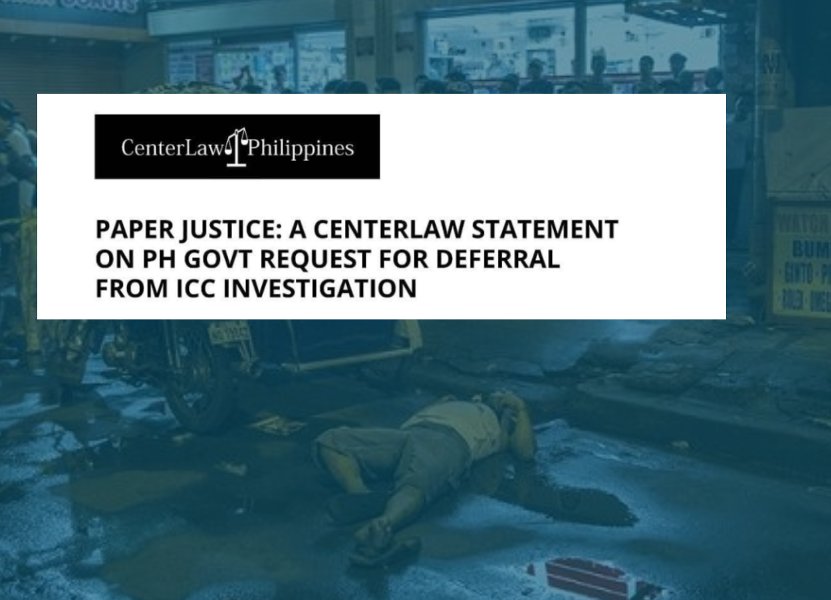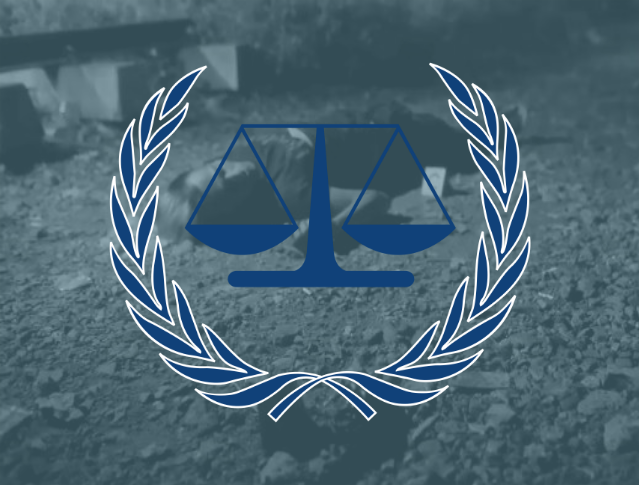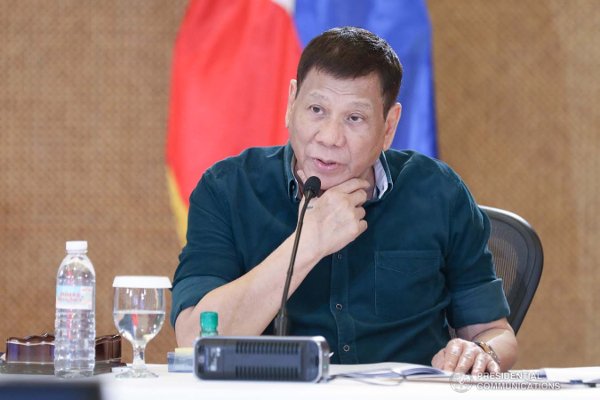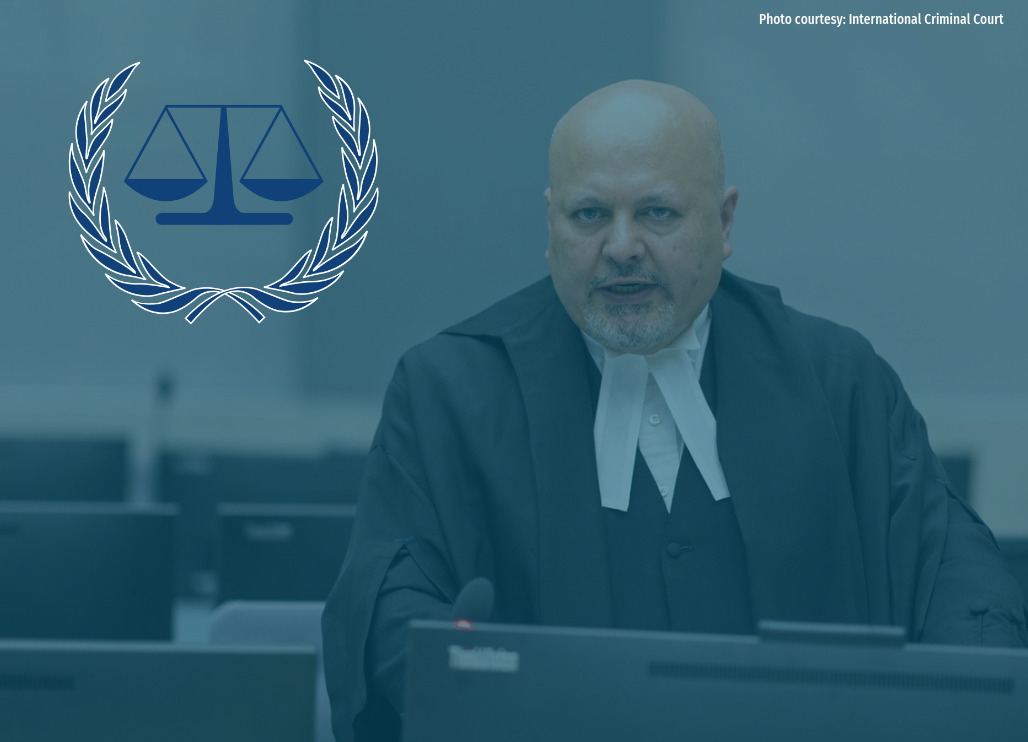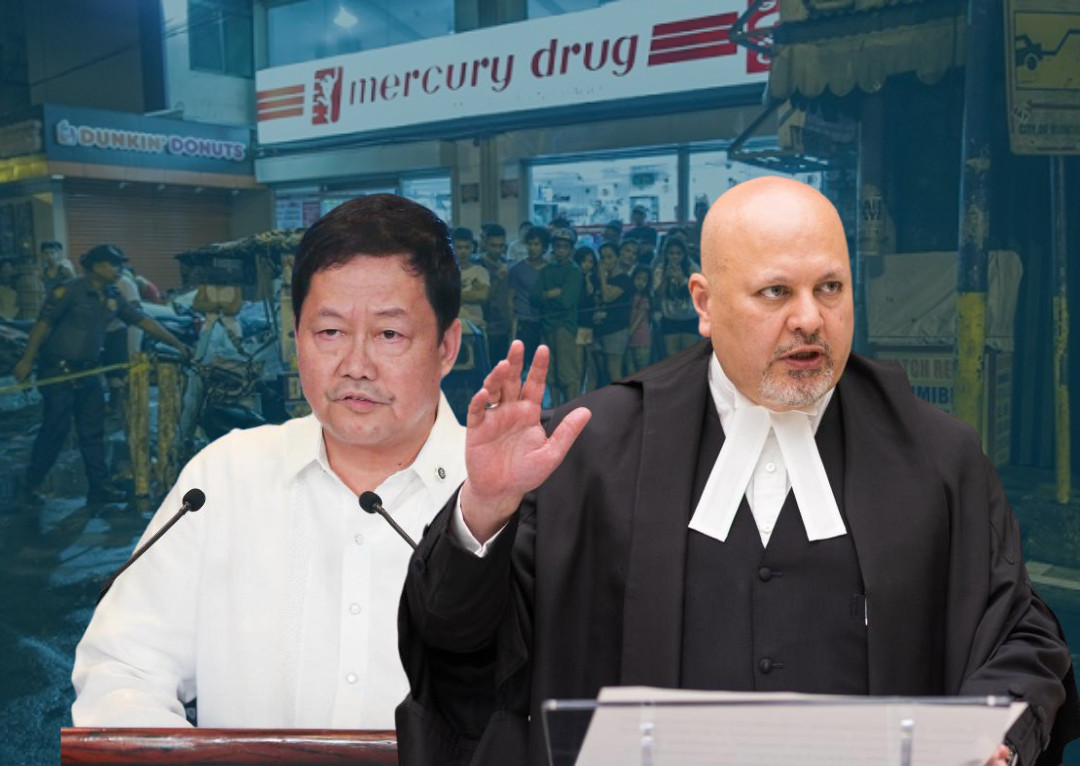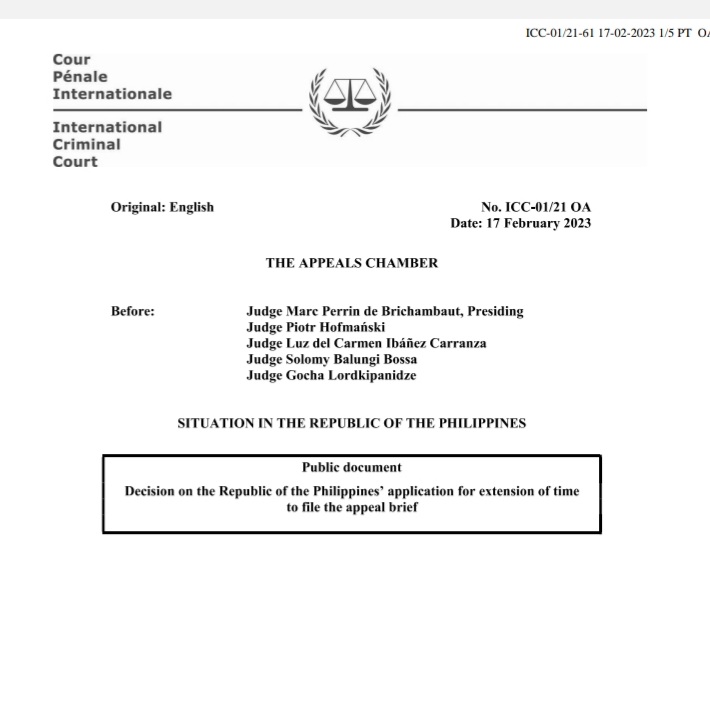Describing as “paper-thin” the government’s claim that it is investigating alleged crimes against humanity related to the Duterte administration’s war on drugs, two lawyers’ groups urged the International Criminal Court (ICC) to allow the office of Prosecutor Karim Khan to continue with its probe.
The ICC Office of the Prosecutor (OTP) announced on Thursday, Nov. 18, that it “has temporarily suspended its investigative activities” on the Philippine situation while it “assesses the scope and effect” of the government’s request to defer to its investigation of its nationals and others within its jurisdiction.
“The fact that only 52 cases of the estimated 30,000 killed have been reviewed reveals that the government’s feigned compliance with international justice is paper-thin,” the Center for International Law Philippines (CenterLaw) said in a statement.
Through a six-page letter dated Nov. 10 from the Ambassador to the Netherlands, J. Eduardo Malaya, the Duterte administration asked the ICC prosecutor to “defer to the Philippine government’s investigations and proceedings” on the “alleged crimes against humanity of murder under article 7(1)(a) of the [Rome] Statute ‘committed throughout the Philippines between 1 July 2016 and 16 March 2019 in the context of the so-called “war on drugs” campaign, as well as in the Davao area between 1 November 2011 and 30 June 2016.”
Malaya invoked the “principle of complementarity” in his deferral request as he enumerated the steps the administration has taken to address the alleged crimes against humanity even as he asserted that the Philippine government “has the first responsibility and right to prosecute international crimes.”
But according to the National Union of People’s Lawyers (NUPL), the “domestic remedies’’ mentioned in Malaya’s letter to the ICC prosecutor “are so contrary to what is happening on the ground and should never be taken at face value.”
In a statement, the NUPL, which serves as counsel for the Rise Up for Rights and for Life, a group that provides legal assistance to families of drug war victims, called on the ICC “not to allow itself to be swayed by the claims now being made by the Duterte administration.”
Centerlaw said the Philippine government’s claims that “it is investigating or has investigated” the crimes against humanity in Duterte’s drug war “could not be further from the truth.”
“Justice must be done not only in word but in deed,” the CenterLaw statement added, as it called on the ICC, “in the interests of international justice, to authorise the OTP to continue with [its] investigations of the situation in the Philippines, as empowered under Article 18(2) of the Rome Statute.”
The non-profit lawyer’s group, which specializes in using international remedies for the promotion of human rights, represents families of 35 drug war victims in 28 barangays in San Andres Bukid, Manila. (See Centerlaw says OSG,PNP gave them ‘rubbish’, files contempt charge)
While suspending its probe, the OTP assured that it will “continue its analysis of information already in its possession” and any new information it may receive from third parties. It added that it will also review the need to request authorization from the Pre-Trial Chamber (PTC), which granted last September the launch of the drug war probe, to “conduct necessary investigative steps” to preserve evidence.
In September, the PTC authorized Khan’s office to launch a full-blown probe into the alleged crimes against humanity, mainly the 12,000 to 30,000 estimated drug deaths, that occurred from July 1, 2016 to March 16, 2019 under the administration of President Rodrigo Duterte. It also expanded the investigation into drug-related killings in Duterte’s hometown Davao region from as early as November 2011. (See ICC authorizes full-blown probe into Duterte’s drug war – Vera Files)
However, the Duterte government blasted the court for violating the country’s “sovereignty” and maintained that it will not cooperate in the ICC investigation, (See Philippine government will not cooperate with ICC; Duterte ‘no reaction’ on impending probe – Vera Files)
In Malaya’s letter, it said the Department of Justice (DOJ) has started a judicious review of anti-narcotics operations where deaths occured, including 52 cases out of more than 6,000 administrative cases pending in the dockets of the Philippine National Police-Internal Affairs Service.
It added that the DOJ is also looking into 300 cases of drug-related killings under the National Prosecution Service, and another 300 cases of extrajudicial killings from the last decade being investigated by an interagency panel on extrajudicial killings (established by Administrative Order no. 35 in 2012).
Article 18 of the Rome Statute provides that the ICC prosecutor shall defer his investigation upon the request of a state, in this case the Philippines. It said the state has to inform the ICC that it is investigating or has investigated persons for crimes within its jurisdiction within one month of receipt of notification.
The statute states that the prosecutor may review the deferral of his investigation after six months “or at any time when there has been a significant change of circumstances based on the state’s unwillingness or inability [to] genuinely to carry out the investigation.”
Meanwhile, former senator Antonio Trillanes IV expressed confidence that the ICC will eventually resume the drug war probe. “This is just part of the ICC’s due process to determine if the government’s EJK investigation is genuine, but we all know that it is not,” he said.
In a few months, he said, “the ICC will also find out that it is just part of the cover up of Duterte and, therefore, we should expect it to resume its investigation.”
Trillanes added that the government’s request to defer to the government’s probe of the drug war is already a “formal recognition” of the ICC’s jurisdiction over the alleged crimes against humanity in the Philippines. The Duterte administration has repeatedly refused to recognize the ICC’s jurisdiction over the Philippines, arguing that it has already withdrawn its membership to the Rome Statute.
Read the OTP announcement here and the Philippine government’s request for deferral here.
